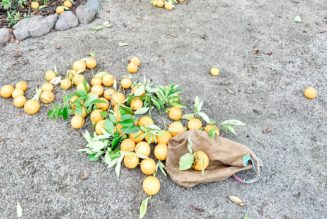
There is not a parent alive who does not agree that parenting takes hard work, dedication, and a long-term stamina never heard of, before you became one! You can read every parenting book on the market, attend every parenting seminar or workshop available, and talk to the best parents you know…and still there will be unanswered questions, worries, or concerns. Parenthood is not for the faint of heart. It is not for the weak. That’s for sure!
All that said, parenthood is truly a gift – a divine blessing. But no matter how big the blessing, the challenge is a big one, too. We are to raise children up in the way they should go, according to Proverbs 22:6. But what does that mean? What way should they go? We, us, numero uno, is now responsible for another human being. It’s pretty scary, when you think about it. Yet, we know God doesn’t make mistakes and He has given us these little treasures to raise. That means He trusts that we have the skills necessary to do it well. Sure, we’ll make some mistakes, and we’ll learn from them. And we’ll do it better the next week.
To survive and thrive in this parenting season for the next 20 years, there is an important principle you need to consider – The “I” in Parenting. In order for you to be the best mom you need to have a strong foundation. That foundation is who you are at your core. Many parents begin the work of parenting techniques and do’s and don’ts of raising a toddler or a teenager, but they never address the core of who they are that lays the foundation for all those principles. So if you are looking for a fresh parenting outlook, or maybe you are in a season where you are absolutely exhausted and fear you are failing as a mom, then ask yourself the following questions:
- Am I enjoying this season? The truth is parenthood – the real meat of it, anyways – is only for a season. Yes, you’ll always be their mom, of course. But the nuts and bolts, daily grind, and huge demand on your time and mental bandwidth will eventually fade. They will eventually become self-sufficient adults who don’t continue to live in your home. Consider this. You are parenting a child diligently, day-to-day for approximately two decades. If you live to be eighty years olds, that means you have 60 years of your life that will be dedicated to other pursuits. It doesn’t mean that once they are grown, they aren’t your pride and joy, and that your role ends completely. It simply means they aren’t the primary focus of every single day. So, enjoy where you are now – in this season. The sleepless nights. The exhausting discussions about boys. The hundreds and hundreds and hundreds of school and sporting events you may be attending. The season passes quicker than you think. And before you know it, they will be adults. Be intentional about enjoying some of the day-to-day activities that you are involved with. Perspective is asking yourself How would I feel if this season ended abruptly? Would I have done everything I could to make it a good season? An enjoyable one?
- Do I realize that I have a gift inside of me? Now, this may seem like an odd question to ask yourself when discussing parenting, but the reality is that you cannot teach a child to pursue his/her dreams, until you learn to pursue your own. Recognizing God has gifted you with unique talents and skills, a unique personality, and beautiful abilities that you offer the world, means you begin to parent your children in a way that nurtures their unique gifts, talents, and personalities. This means you must first understand that you have been equipped with unique skills and talents in order to address those in your children. Your character traits and personality are perfectly knit to be the parent you are called to be for your child. This is important stuff! How can you teach your child to shoot for the moon, reach for the stars, or break the glass ceilings, if you aren’t willing to pursue your own dreams, acknowledge your own gifts, and use the talents bestowed upon you for the greater good of life. It’s true that children learn through communication – both verbal and otherwise. But the greatest lessons you will teach your children are what you do, not what you say. These will be the ones they remember in the long run. Begin to evaluate the gifts you offer and ask yourself if you are utilizing those gifts and skills to the best of your ability. Are you dreaming again? Are you pursuing the hopes of your future that God has planned? (See Jeremiah 29:11).
- Do I feel good enough – worthy of love? This is a tough one. We all have had life experiences that shaped us – some good, some bad. None of us have escaped the bad part. Whether it be the death of a loved one, a cancer battle, poor choices, a challenged childhood, or a barrage of other difficulties, life can surely beat us down. That said, we must self-analyze frequently as a parent. We must evaluate how we feel about ourselves. How can we teach self-worth and determination to our children, when we lack it in ourselves? How can we shape their futures with pep talks? We can’t. We shape their futures, by ensuring we are as healthy as we can be, emotionally, spiritually, and mentally. This is why the “I” in parenting is so important. If you constantly battle with feelings of unworthiness, your actions and words will reflect that. And even if you tried really hard to not impact your child, you will. The healthier you are physically, mentally, financially, emotionally, parentally, and spiritually, the more healthy you will raise your children to become. You can’t give what you don’t have. Commit to work on you.









